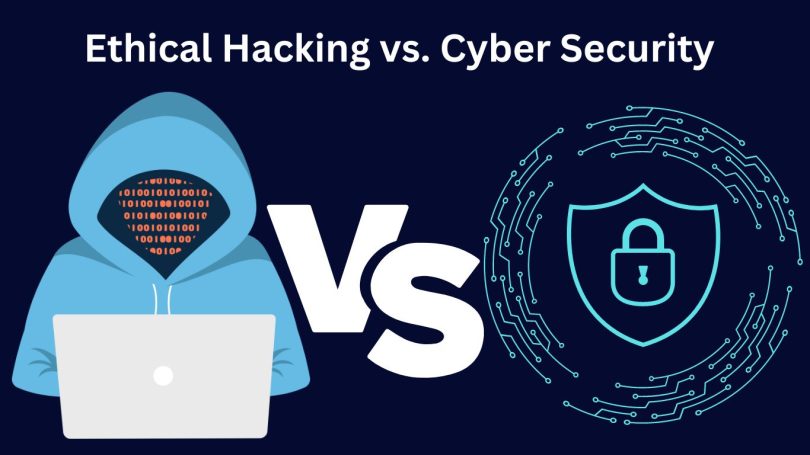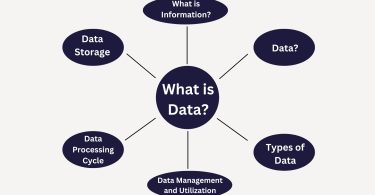Many organizations are now paying much attention to improving their system security by ensuring adequate policies are being implemented on cybersecurity in their establishments. The focus of this area is to guarantee the protection of important data and information. Compared to other domains within the sphere of cybersecurity, ethical hacking can be considered one of the most important subfields. Corporations that are putting resources into security frameworks are probably going to search for ethical hackers and cybersecurity experts to oversee their frameworks and systems. As a result, employment opportunities in this area are predicted to be high. Thus, for those who want to work in the sphere of cybersecurity or already have some experience in this field, many certifications can be obtained, and the development of a career is possible.
Living in a world where the term ‘cyber’ is involved in almost everything, it is crucial to have proper security measures.
But within this vast landscape lies a fascinating distinction: ethical hacking and cybersecurity. Both protect our digital assets, but they do it in different ways. Now, let’s take a closer look at white hat and black hat to shed more light on these two significant areas.
Ethical Hacking:
Ethical hackers can also be referred to as white hat hackers or penetration testers and they are the good men within the cyber space. They perform the role of hackers, in which legitimate entities are allowed to hack an organization’s systems in the process of penetration testing. Think of them as penetration testers with extra added hacking abilities who are testing your organization’s security posture to the extreme.
What are the activities of ethical hackers?
Vulnerability Assessments: Ethical hackers conduct vulnerability scans to establish the strengths and the levels of security in a network, applications or systems.
Penetration Testing: They mimic actual cyber threats, trying to unauthorized and take advantage of the weaknesses, which may reveal security threats.
Social Engineering Assessments: They put into practice social engineering by mimicking ordinary emails or other techniques to check the efficiency of the organization’s security awareness training.
Benefits of Ethical Hacking:
- Proactive Defense: Ethical hacking is the process of making an organization know of its weaknesses so as to prevent them from being used by the wrong people.
- Improved Security Posture: Knowing one’s threats enables an organization to address issues of security and take action on areas that need to be sealed.
- Compliance: Ethical hacking can be a key tool in ensuring that the industry standards and data security regulations are met.
Cybersecurity:
Cybersecurity is broader than the processes and measures used to protect IT assets, systems and information against unauthorized access, usage, revelation, interference, alteration, or destruction.
It’s a multifaceted shield that encompasses various elements:
Network Security: This involves protecting the computer system or the network from being invaded or attacked by other people or programs.
Application Security: This centers on protecting applications and software from threats that are vulnerable to attackers.
Data Security: This makes certain that data is safeguarded all through from the time it is generated, processed and even disposed of.
Incident Response: This entails having a strategy that can be followed from the time an organization experiences a security breach until the problem is solved.
Security Awareness Training: This also serves the purpose of raising awareness among the employees about the security threats as well as how they can protect themselves as well as the organization.
Ethical Hacking and Cybersecurity:
Ethical hacking plays an important part in the general framework of cybersecurity. While performing the attacks and learning about the weaknesses, ethical hackers can give information that security specialists can apply to enhance the security of an organization. This contribution makes it easier for organizations to combat new emerging threats in virtual reality.
Choosing a Career Path:
Ethical hacking and cybersecurity as professions are quite rewarding. Ethical hackers, often have solid technical backgrounds in penetration testing tools and techniques. The cybersecurity specialists, in contrast, may have more diverse competencies such as network or application security and the knowledge of handling the incidents.
In Conclusion:
With large businesses focusing on strong security measures, both ethical hackers and cybersecurity experts are in demand. These two create a robust defense against emerging cyber threats because of their multiple layers. Ethical hacking is also used as a preventive measure where potential loopholes are discovered before the hackers do. Cyber security, which can be referred to as the umbrella to the other approaches, is the practice of protecting data and systems. With these synergies and an aim to obtain the pertinent certifications, people can join this fast-emerging industry and act as protectors of the modern digital era.



